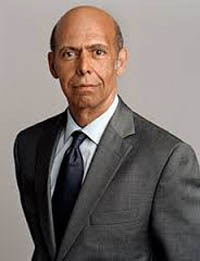They often receive inequitable state and federal funding and are often under-resourced and under-supported. Despite their uphill battle, new research details that historically Black colleges and universities have had a positive economic impact on the nation.
 Dr. Michael Lomax
Dr. Michael LomaxThe United Negro College Fund, or UNCF, published the 88-page report Tuesday outlining the considerable return-on-Investment (ROI) of Black colleges throughout the country.
The findings of the report were announced during a UNCF briefing on Capitol Hill that included a panel of presidents from various HBCUs.
“The intended audience is the entire country, not just HBCUs and HBCU stakeholders,” said Dr. Brian Bridges, vice president of research and member engagement at UNCF. Dr. Michael Lomax, president and CEO of UNCF, said that the report provided HBCUs an opportunity to share their economic impact with a broader audience.
The report, titled “HBCUs Make America Strong: The Positive Economic Impact of Historically Black Colleges and Universities,” comes at a time when the federal government has decreased its support for HBCUs, according to experts.
UNCF hopes that its report will counter existing narratives about the declining legitimacy of HBCUs in the national landscape.
“I’ve been at this business for over half a century, so I had a sense that HBCUs had an economic impact, and that story wasn’t being told very well,” Lomax said.
Relying primarily on U.S. Department of Education data, the report states that the nation’s 101 HBCUs spend about $14.8 billion on faculty, employees, academic programs and students. HBCUs across the country provide over 134,090 jobs within their respective communities, and 57,868 of these jobs are on-campus.
“Each $1 million initially spent by an HBCU and its students creates 13 jobs,” according to the report.
“I was actually surprised by the numbers: the number of people that are employed at institutions, the payrolls of these institutions, the lifetime earnings of their graduates,” Lomax said. “I think these are much more robust and significant numbers than we’ve been aware of.”
According to the report, the lifetime earnings for HBCU graduates totals $130 billion. It adds that for individuals, an HBCU education adds $927,000 to lifetime earnings.
The speakers at Tuesday’s panel included Dr. Mary Schmidt Campbell, president of Spelman College, who said that Spelman has focused its efforts on technology, science and the arts.
“I think what this report does is it emboldens us and confirms that, as engines of economic growth and change, there’s much we can do not only for our region but for our local communities,” Campbell said.
Another panelist, Dr. Billy C. Hawkins, president of Talladega College, which is celebrating 150th anniversary, said his institution is here to stay for another 150 years. He explained that the college is currently constructing a museum, which, in addition to other building projects, will help add 260 jobs over the next several years.
“For some time now, I’ve been so sick and tired of hearing about the relevancy of our HBCUs, and whether they should exist or not,” Hawkins said. “Well, Talladega’s been around 150 years. Is that relevancy or not?”
The college presidents provided anecdotal evidence that they say substantiates the data. Bridges said he hopes this report will be a point of departure for institutions to be more active in publishing their own internal reports and making known the impact that they have in their communities.
For Lomax, these early conversations surrounding the report are further evidence of a “vibrant community of institutions.”
“I think rumors of the demise of historically Black colleges are greatly exaggerated. These are robust institutions playing a powerful role locally and in their states and nationally,” said Lomax. “We’ve got to do a better job of telling that story and getting the investment that these institutions warrant.”
Joseph Hong can be reached at [email protected]





















